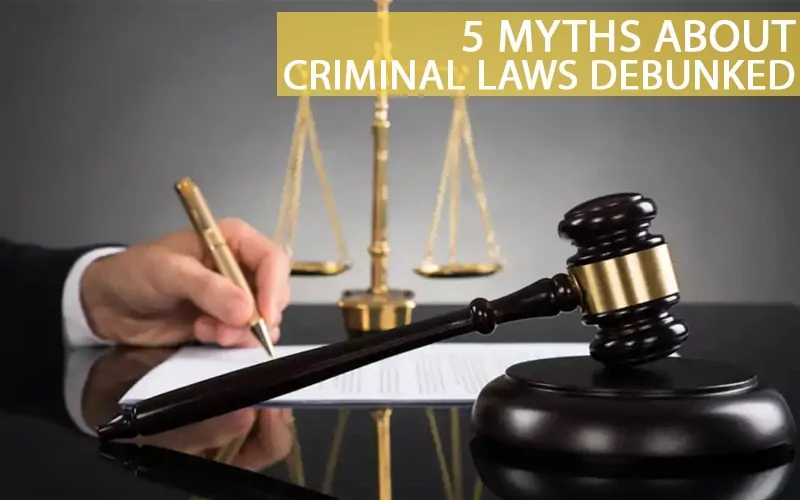Criminal law is complicated and confusing, but the many misconceptions and crazy theories surrounding the concept do not help things get any clearer. Many people are influenced by television and media and often think that that’s a realistic portrayal of the judicial system. However, there’s a creative license involved in those shows and are not always accurate. There are even a lot of jokes based on lawyers, and criminal lawyers are specifically mentioned. Everyone loves a good laugh, but this also highlights some of the myths about the profession. You may have required the services of Criminal lawyers in Winnipeg and now understand how vital a role they play in balancing the scales of justice.
But for those who haven’t, let’s debunk some myths and get the truth out there so that you don’t face a rude awakening in case you seek legal counsel.
Myth # 1: Laws are Different in Each Country.
Fact: While the practice rules may differ, the law is the law! In every country, in every courtroom, the same provincial and federal laws govern them all.
Top Winnipeg lawyers are familiar with various practices that differ within courtrooms, and this myth could be due to different approaches taken by every prosecutor that change how matters proceed. The law can also be applied in several ways and is used by the judge’s discretion, which could differ massively from courtroom to courtroom. This is why you should always opt for a skilled and resourceful attorney if you’re charged with any crime, probably someone who knows the judges and prosecutors so that you have the highest likelihood of winning the case.
Myths # 2: If the Police are Helpful, Then I Don’t Need a Lawyer.
Fact: The police have their own pre-defined job to do, and that means collecting evidence and information about a crime.
They do not need to be, nor do they have any interest in being helpful to a suspect. It would be a mistake not to seek legal counsel from criminal lawyers in Winnipeg even if the police present themselves as compassionate to your cause. Whether aggressive or kind, the police are building your case, taking in whatever you say. It is recommended never to give any statement without talking to a criminal lawyer.
Myth # 3: The Case can be Withdrawn if the Complainant Changes Their Mind.
Fact: In Canada, just like elsewhere, a complainant is the one who generally makes an allegation against the accused, who then faces and has to defend criminal charges.
This incident usually happens in domestic assault cases quite frequently. Unlike America, the complainant cannot ‘change their mind’ after the charge and withdraw the case in Canada. Here only the prosecutor has the power to do that, and the decision will be judged on all the evidence and if the prosecution believes there’s a reasonable chance of getting a conviction.
Myth # 4: The Presence of a Lawyer is Mandatory During Police Questioning.
Fact: The popularity of American law dramas may lead Canadians to expect that they, too, are entitled to have lawyers present upon request while being questioned by the police, but for adults, that is not the law.
While detainees do have an opportunity to consult with top Winnipeg lawyers to obtain information on how to navigate the questioning procedure, they must face the music alone. However, if you’re a minor anywhere between the ages of 12-17, then the presence of a lawyer and a parent is mandatory during police interrogation.
Myth # 5: I am Guilty so Hiring a Lawyer is Useless.
Fact: Whatever you did or didn’t do is of little consequence in a court to be able to convict you of what you are accused with.
If you ‘did’ something, then the charges could be unrelated to that, or you may be charged with a number of offences unrelated to the thing you ‘did’. There may be technical problems with the charges like being outside limitation periods. A lawyer is your only chance out of this confusing and sticky situation.
Criminal lawyers in Winnipeg are dedicated and committed to doing their job, which is why never presume anything about criminal law and seek legal counsel as soon as you’re charged.
